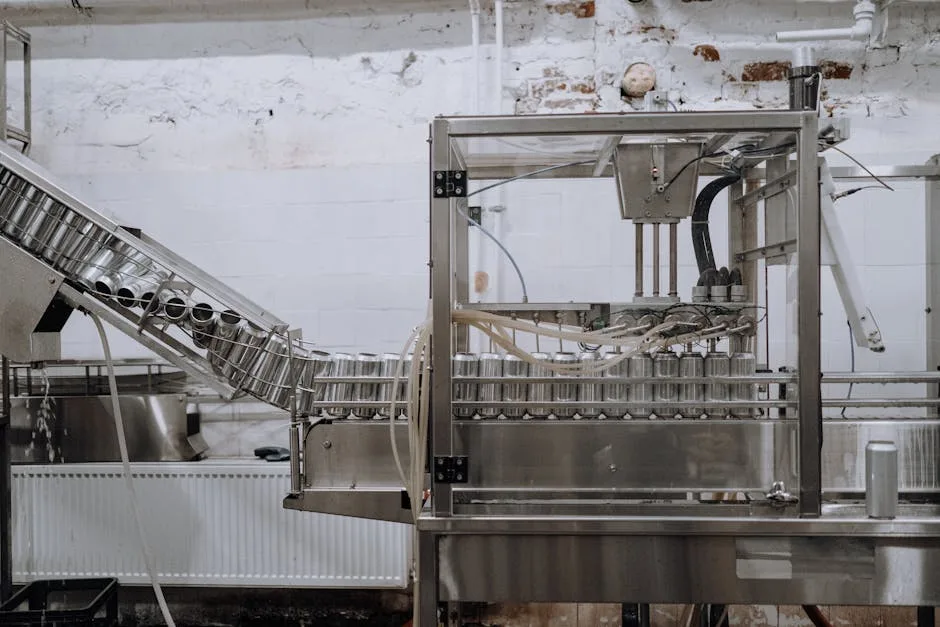
The UK government has announced a £1.5 billion ($2 billion) loan guarantee for Jaguar Land Rover (JLR) to stabilize the iconic automaker’s operations and supply chain following a debilitating cyberattack that forced a complete production shutdown1. The attack, claimed by a group calling itself “Scattered Lapsus$ Hunters,” has halted production for nearly a month, costing the company an estimated £50 million per week and pushing its small and medium-sized suppliers to the brink of financial collapse1, 10. This state intervention, facilitated through the UK Export Finance’s Export Development Guarantee, is designed to unlock private finance, allowing JLR to clear a significant backlog of payments to its suppliers and protect an estimated 120,000 jobs across the UK’s automotive supply chain2, 4.
Government Intervention and Financial Mechanics
The core of the government’s response is a £1.5 billion loan guarantee, not a direct loan. The financial mechanism involves a commercial bank providing the loan, which is then backed by the Export Development Guarantee (EDG) from UK Export Finance (UKEF)2, 10. This structure is intended to “unlock” the full amount in private finance, specifically aimed at bolstering JLR’s cash reserves. The primary purpose is to provide JLR with the liquidity needed to settle its outstanding debts to a supply chain of approximately 700 suppliers, many of which had reportedly been left with as little as one week of cash reserves1, 8. The loan will be repaid by JLR over a five-year period, placing the financial onus on the company while the government underwrites the risk. Chancellor Rachel Reeves emphasized the move was about protecting “thousands of those jobs with up to £1.5 billion in additional private finance”1, 2.
The Precipitating Cyberattack and Operational Impact
The crisis began on August 31, 2025, when JLR fell victim to a cyberattack, prompting the company to suspend all production at its UK plants on September 11, 10. The attack group, “Scattered Lapsus$ Hunters,” has been linked to other recent incidents targeting UK retailers Marks & Spencer and Co-op1. The operational impact was immediate and severe; no cars were built throughout the entire month of September across JLR’s plants in Solihull, Wolverhampton, and Halewood, which typically produce around 1,000 vehicles per day1, 10. In response to the IT system compromise, JLR ceased placing new orders with its suppliers, creating a cascading financial crisis throughout its supply network. The company has stated that a phased restart of production is planned, beginning at its Wolverhampton engine plant on October 6, with a full return to capacity expected to take several weeks7.
Cascading Supply Chain Crisis
The production halt at JLR had a devastating ripple effect on its extensive supply chain, which employs approximately 120,000 people across the UK2, 4. Testimony before a parliamentary committee revealed the extreme financial distress faced by these small and medium-sized enterprises (SMEs). Labour MP Sarah Edwards warned that some suppliers in the Midlands had only “seven to ten days’ cash left”8. A recent survey confirmed that the prolonged shutdown is “driving suppliers to cut jobs and reduce hours”10. The severity of the situation was further highlighted by reports that some supply chain firms were forced to establish food banks for staff who had been laid off7. This illustrates how a cyber incident targeting a single major corporation can rapidly escalate into a broad socio-economic crisis affecting thousands of workers indirectly employed by the target.
Political and Stakeholder Reactions
While the government’s loan guarantee was widely acknowledged as necessary, it was met with significant criticism regarding the speed of the response. Shadow Business Secretary Andrew Griffith welcomed the support but stated it “took too long to get there” and proposed the creation of a cyber reinsurance scheme1. Conservative MP Saqib Bhatti was more direct, calling the loan “necessary” but adding, “Do I think the government moved too slowly? 100%”1. The Unite union described the financial package as an “important first step” but immediately demanded assurances that the funds would be used to guarantee jobs and protect the skills and pay of workers both at JLR and throughout its supply chain1. These reactions underscore the complex challenges governments face when responding to large-scale cyber incidents that threaten critical national industries.
Broader Context and Implications
The JLR incident is not an isolated event but part of a concerning trend of cyberattacks impacting major UK and European entities. Shortly after the JLR attack was disclosed, luxury retailer Harrods confirmed a data breach affecting 430,000 customer records, and Japanese brewer Asahi reported a cyber-attack impacting its European operations7. This pattern suggests a targeted campaign against high-profile commercial entities. For security professionals, the JLR case study highlights the tangible, non-digital consequences of cyber incidents, moving beyond data theft to direct physical operational disruption and severe financial contagion. The near-month-long production stoppage demonstrates the critical need for robust business continuity and disaster recovery plans that can maintain or rapidly restore core operational technology and supply chain management systems.
The UK government’s £1.5 billion intervention for JLR marks a significant moment in the response to cyber threats against critical national infrastructure, broadly defined. It demonstrates the potential for a single cyber incident to require state-level financial stabilization efforts. The incident underscores the necessity for large enterprises to not only invest in preventative cybersecurity measures but also to develop and test comprehensive incident response and business continuity plans that account for extensive third-party dependencies. As the company begins its phased production restart, the focus will be on how effectively the financial lifeline stabilizes the wider supply chain and how the automotive sector, and other critical industries, adapt their resilience strategies in response to this stark warning.
References
- “Jaguar Land Rover production halted by cyber-attack,” BBC News.
- “Government backs JLR with £1.5 billion loan guarantee,” GOV.UK.
- “UK govt backs JLR with $2 bln loan guarantee after cyberattack,” Yahoo Finance.
- “JLR to restart production following cyber attack,” Just Auto.
- [Source 5 not used in provided content]
- “Jaguar Land Rover cyberattack forces production halt,” Bleeping Computer.
- “Jaguar Land Rover to restart production after cyber-attack,” BBC News.
- “JLR suppliers face cash crunch as cyber attack halts production,” Automotive World.
- “UK government backs JLR with £1.5bn loan guarantee following cyber attack,” Motor Finance Online.
- “UK govt backs JLR with 1.5 bln loan guarantee after cyberattack,” Reuters.





